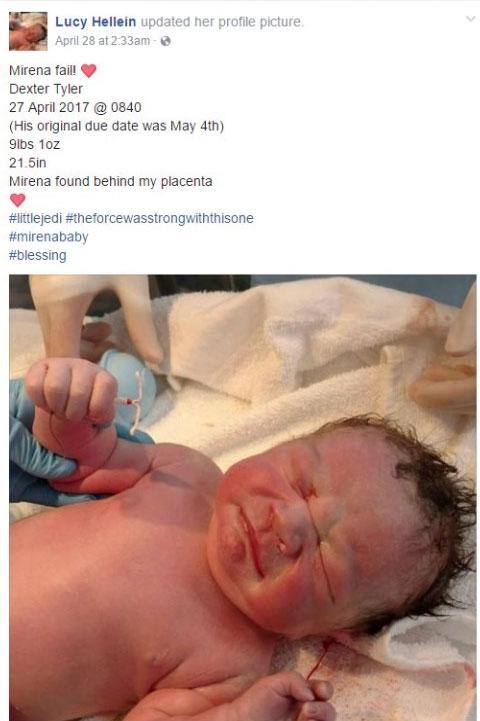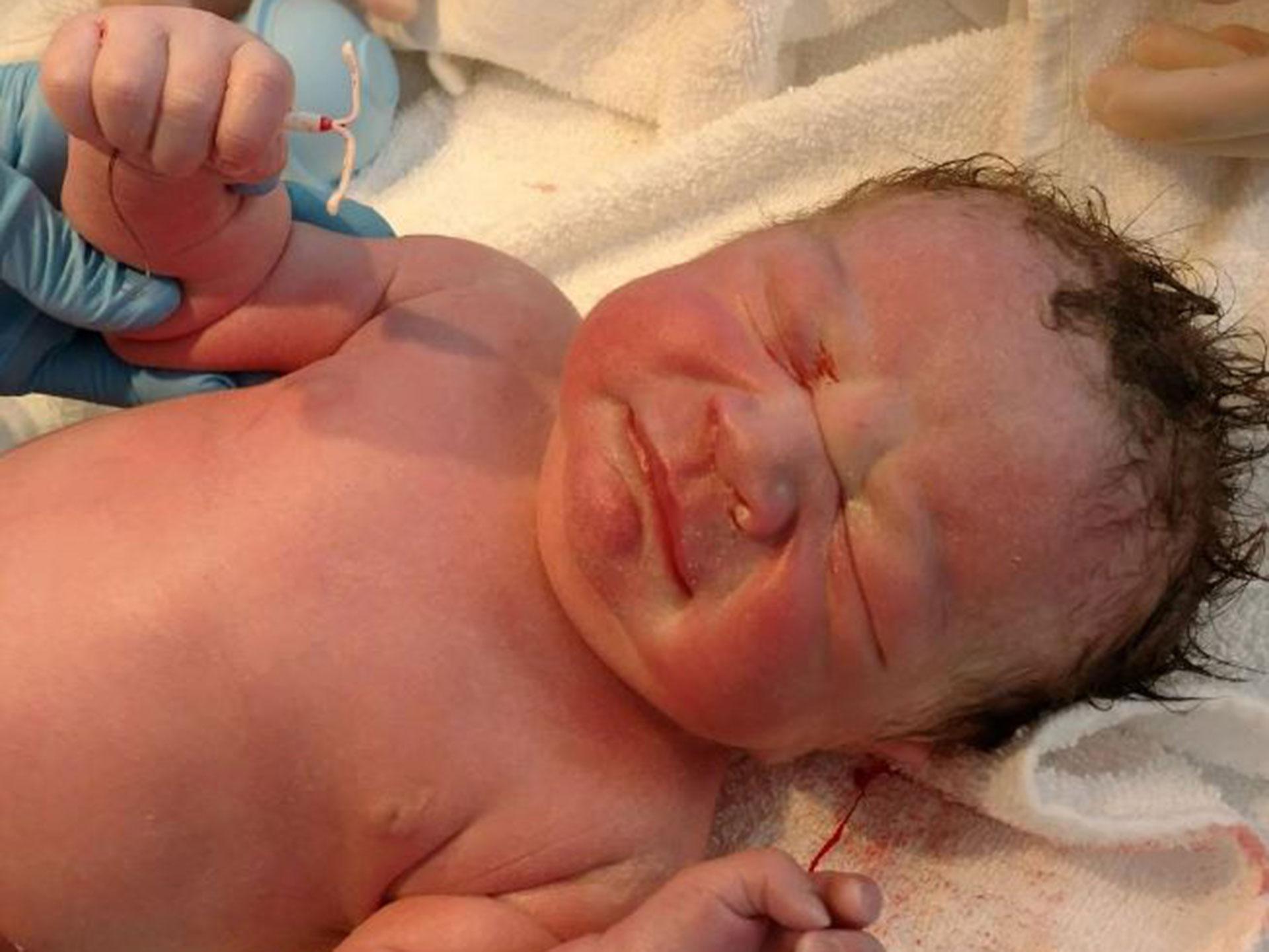New UK mum Lucy Hellein got a little more than she bargained for with her most recent Mirena Intra-Uterine Device (IUD).
While this was her third Mirena IUD (the previous two worked as they should, preventing her from being pregnant), it seems the contraception device “failed” Lucy when she realised she was 18 weeks pregnant.
Telling Metro about the moment she discovered she was pregnant, Lucy assumed she was only “a few weeks along,” rather than four-and-a-half months into her first pregnancy.
“My Mirena was nowhere to be found on ultrasound so my OB assumed that it had fallen out,” she says. “But I wasn’t convinced.”

Adding strength to the argument that a mother’s intuition is always right, Lucy was, in fact, correct, with the IUD finally found when she gave birth; it was hidden behind Lucy’s placenta.
Lucy had a giggle at the situation when her loved little boy Dexter was delivered – posing him with the IUD in his tiny hands for a quick photo.
Experts say that this is an very rare occurrence, but it is important for women with IUDs to be aware of.
However, this shouldn’t scare anyone from using IUDs as contraception.
According to Marie Stopes International, hormone IUDs (like Mirena) are 99.8 per cent effective, while copper IUDs are 99 per cent effective.
Compared with other contraception methods like the Pill and condoms, there is no room for user error with an IUD, which might reduce the efficacy of the product.
What are the differences between copper and hormonal IUDs?
According to Marie Stopes International, the copper IUD works by preventing an egg and sperm meeting, while the Hormone IUD releases progestogen which prevents the sperm reaching an egg.
What happens if you get pregnant with an IUD?
Although the risk is very small of getting pregnant with an IUD implanted, The Royal Women’s Hospital says there is “risk of an ectopic pregnancy (where the fertilised egg implants in the fallopian tubes) when the IUD fails”.
If you want to learn more about IUDs as well as other forms of contraception, speak to your trusted GP, or book an appointment with a gynaecologist.


